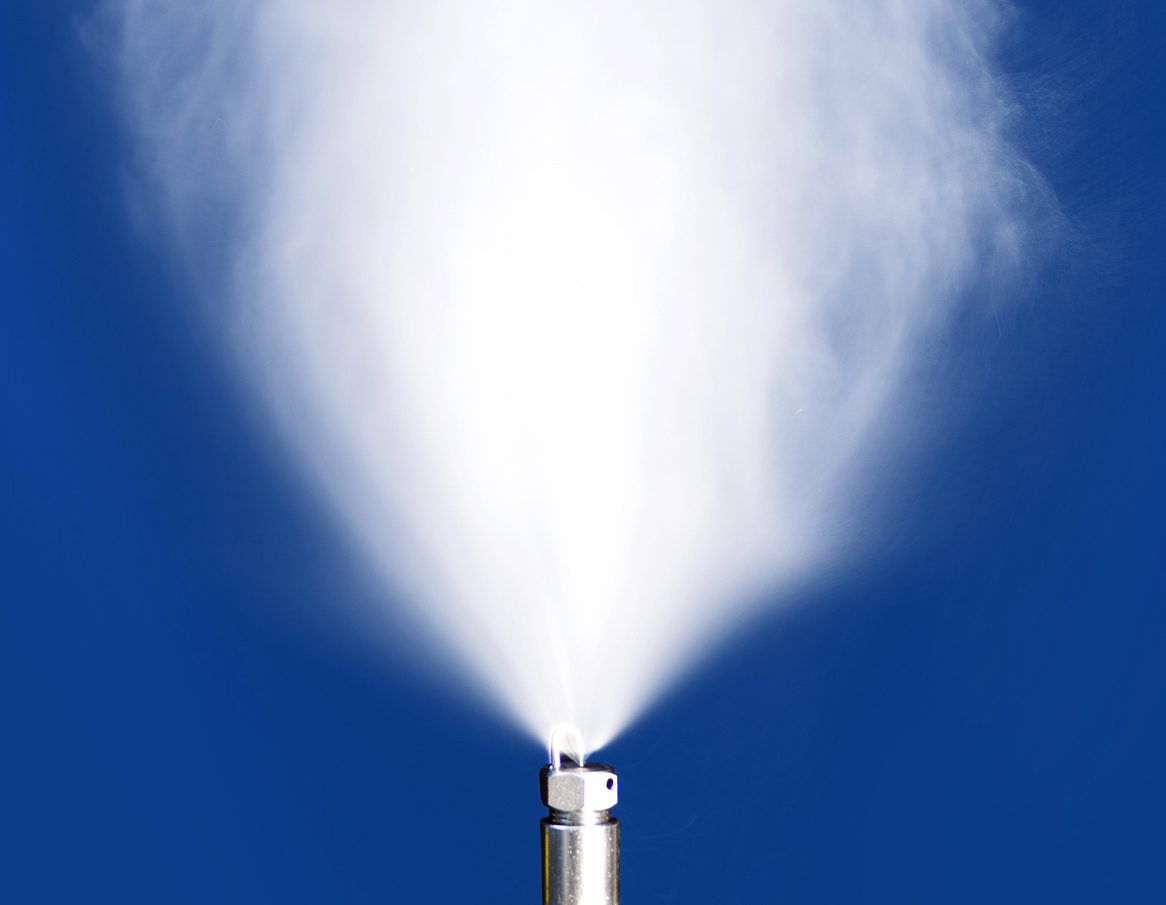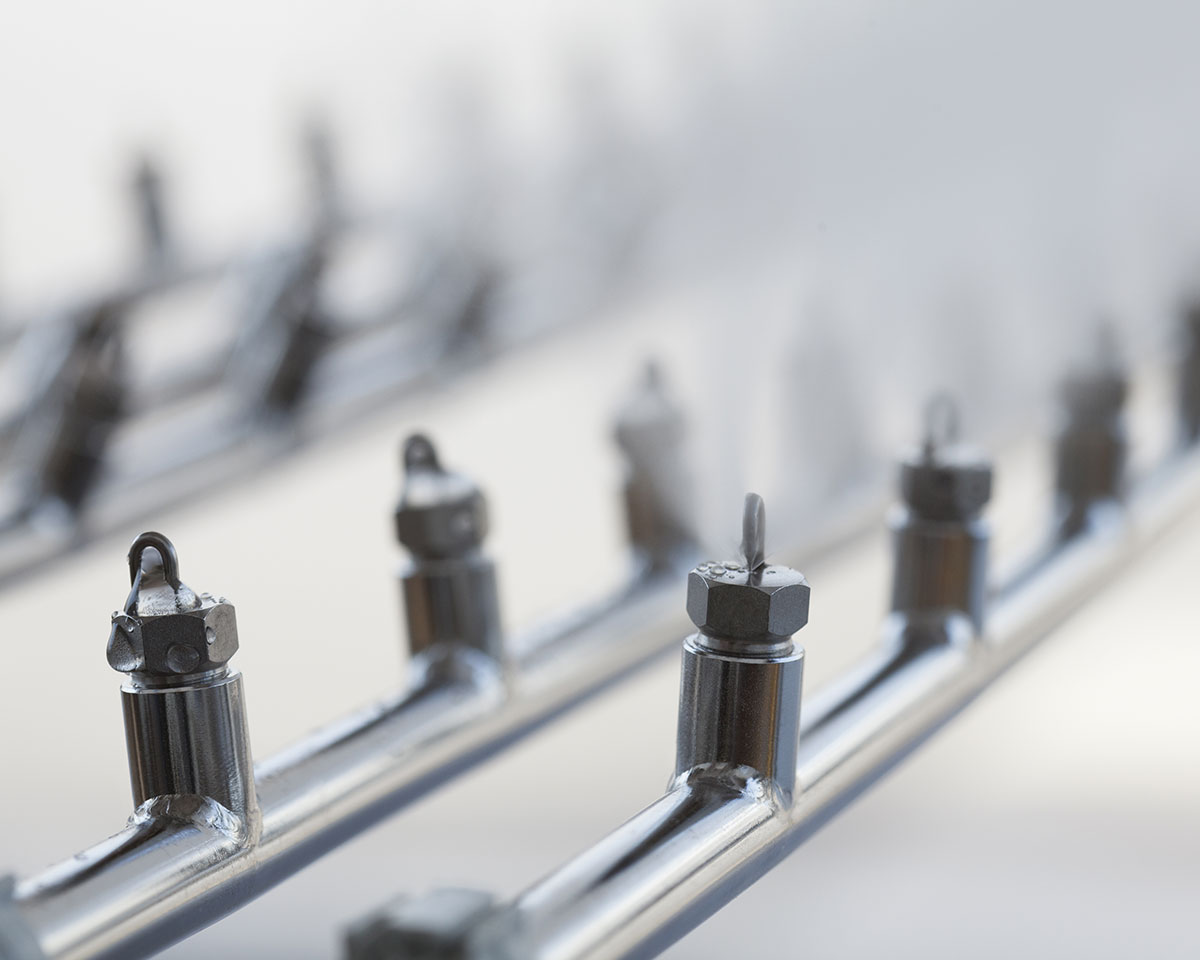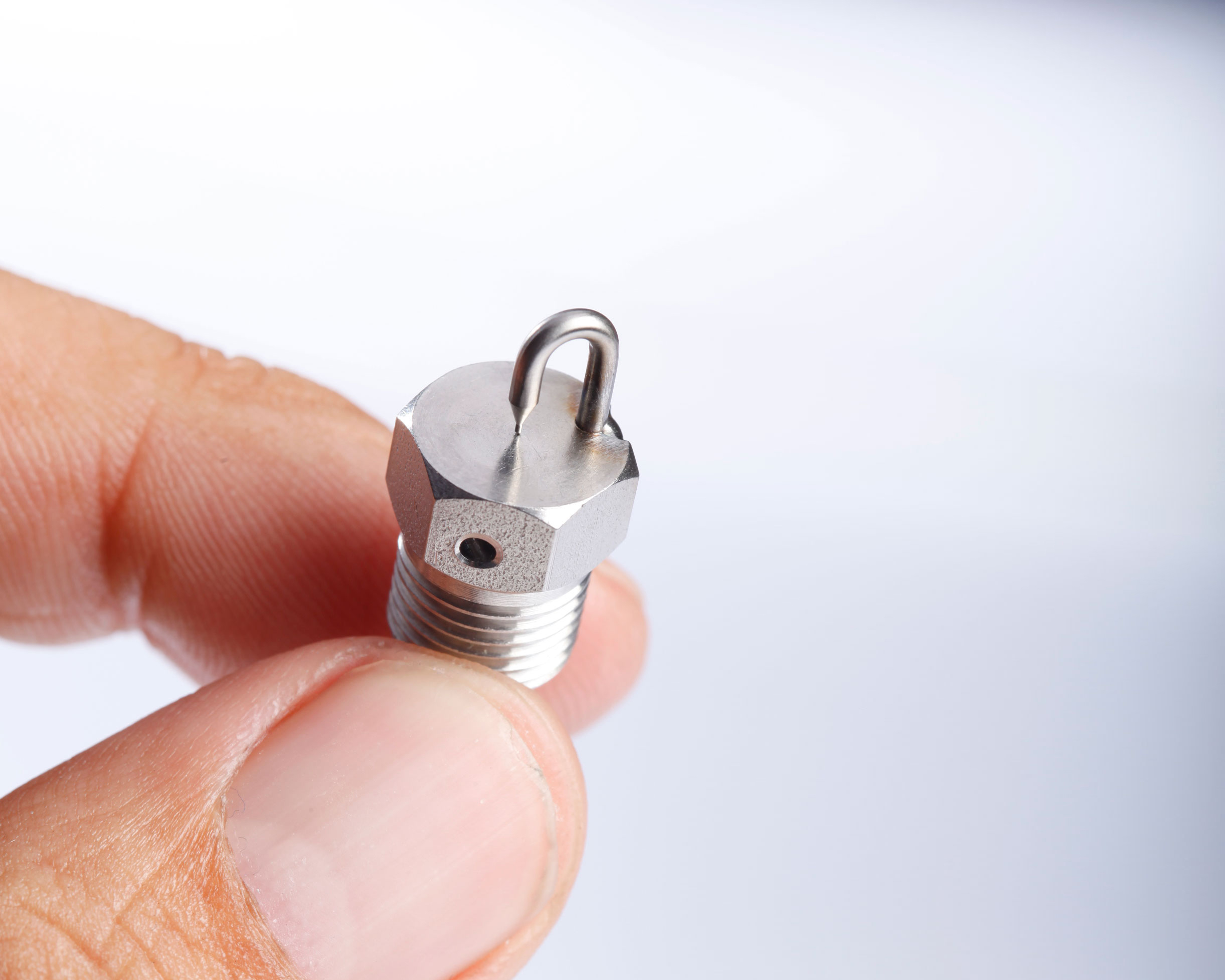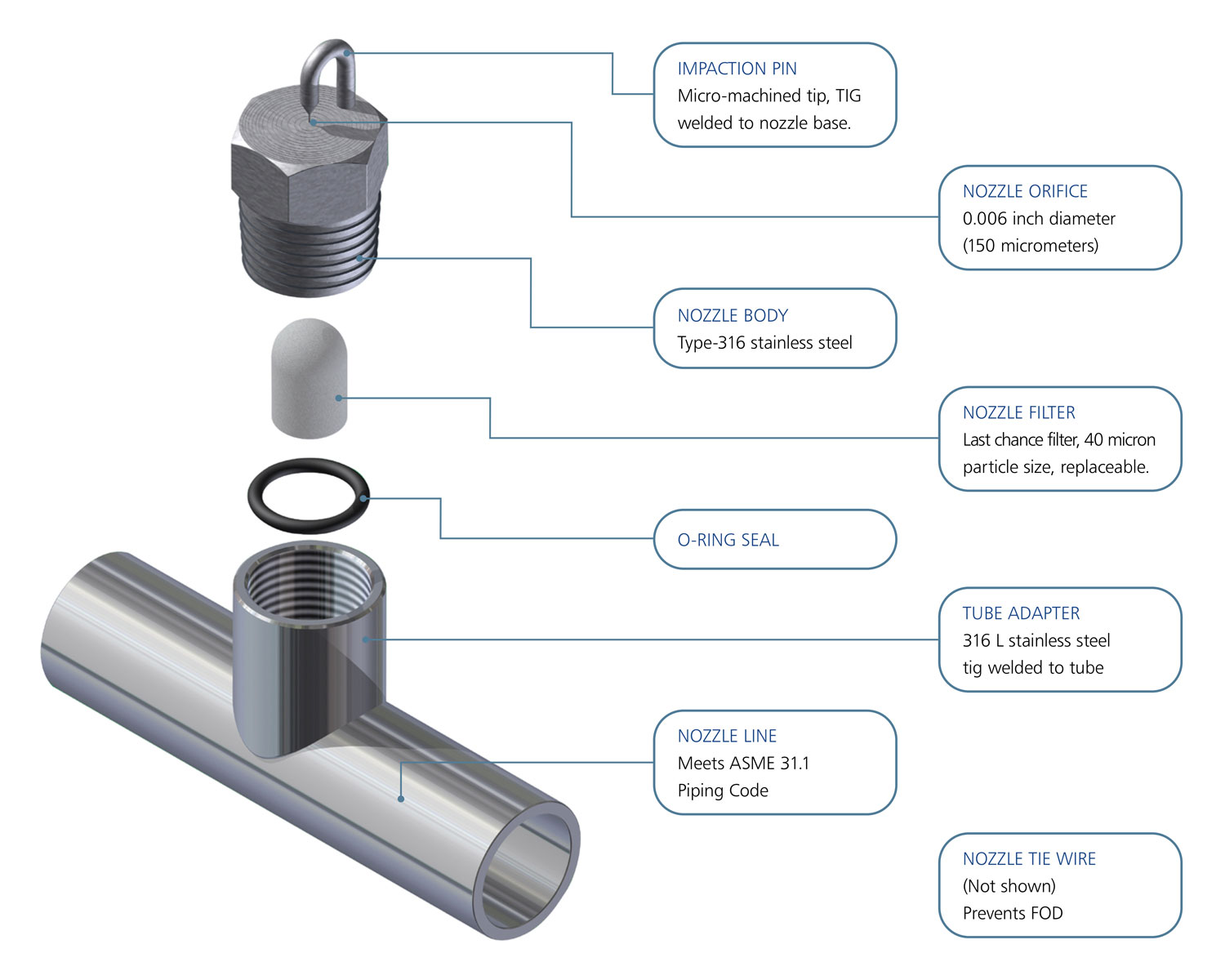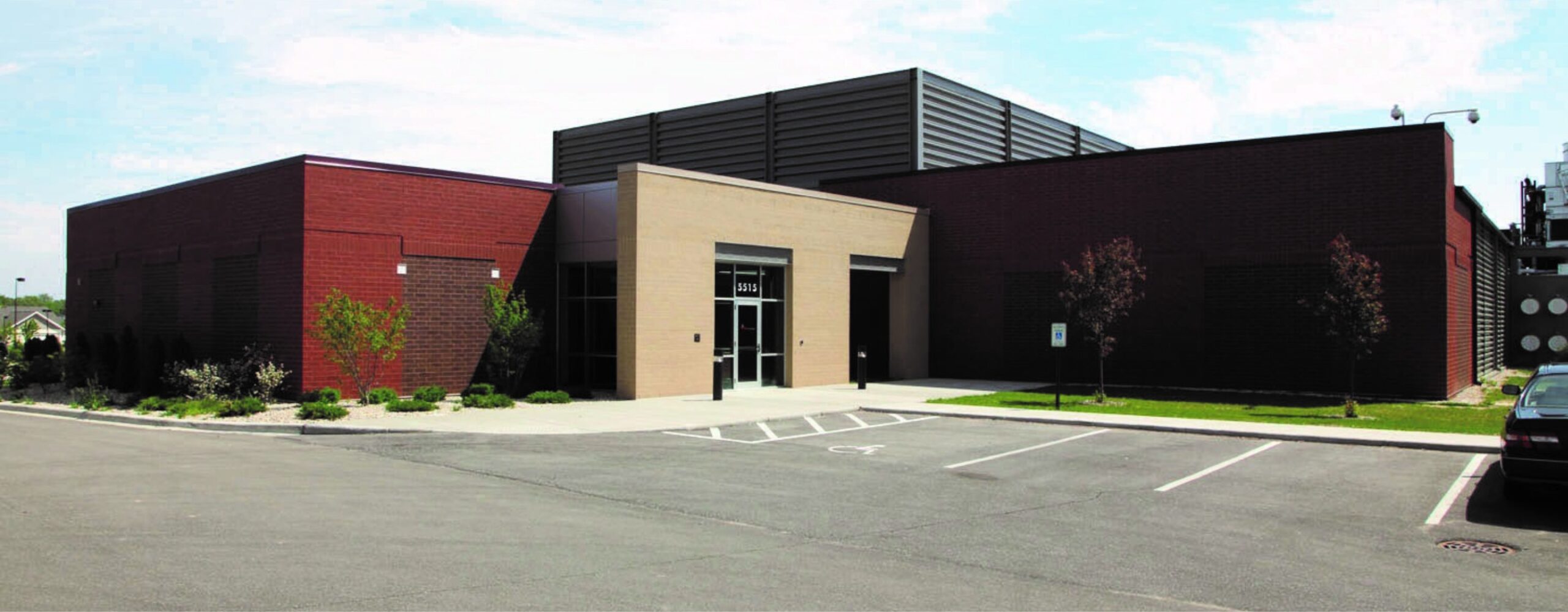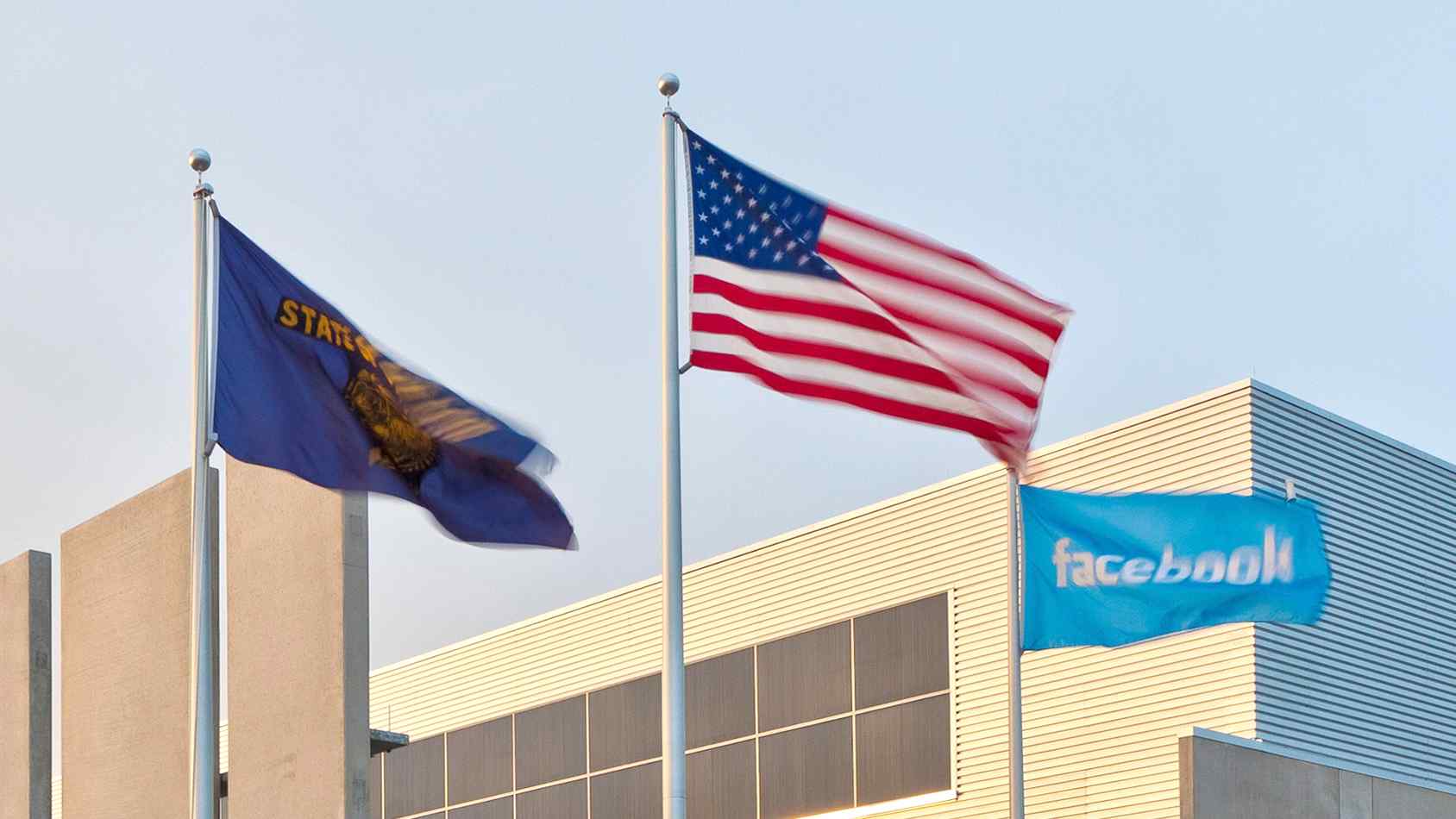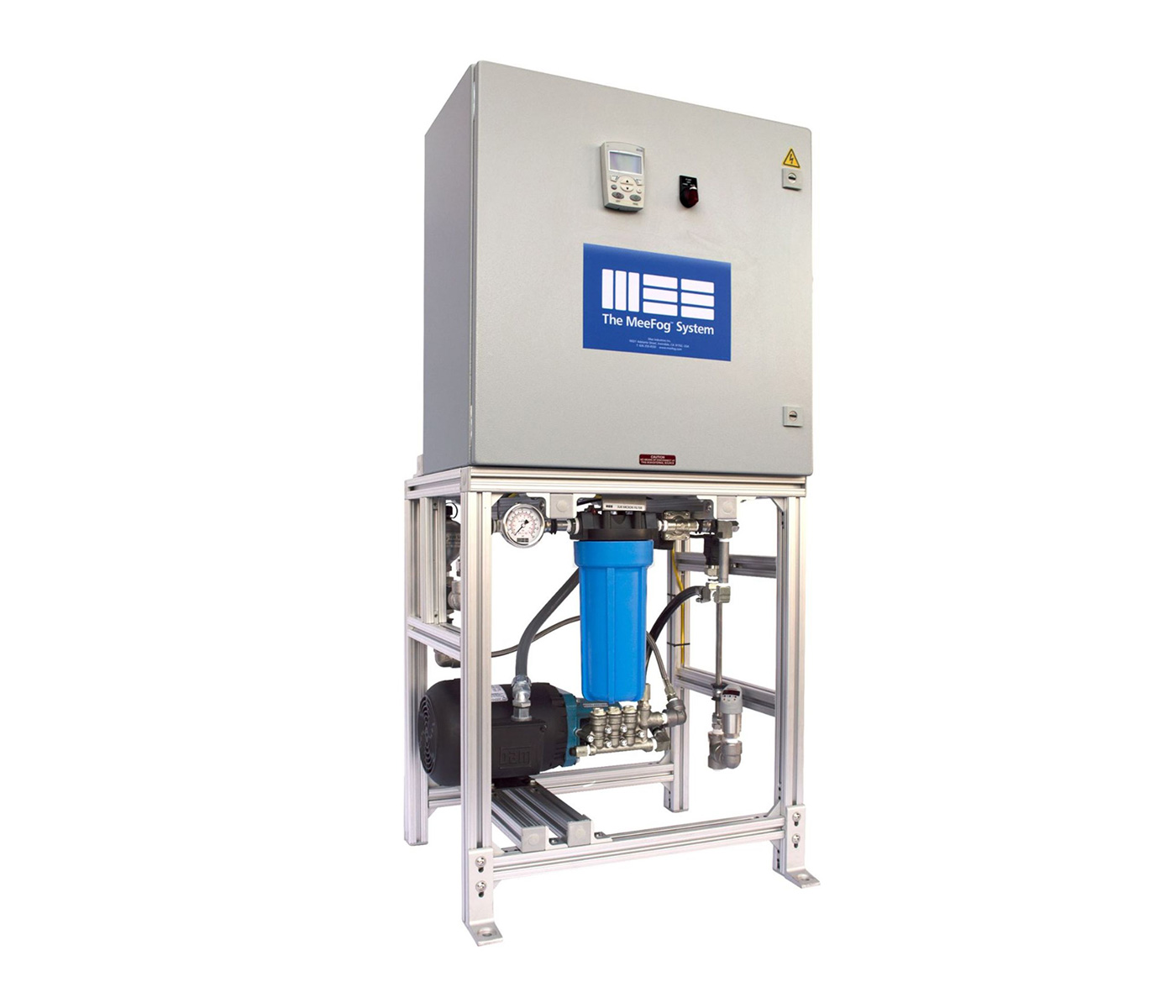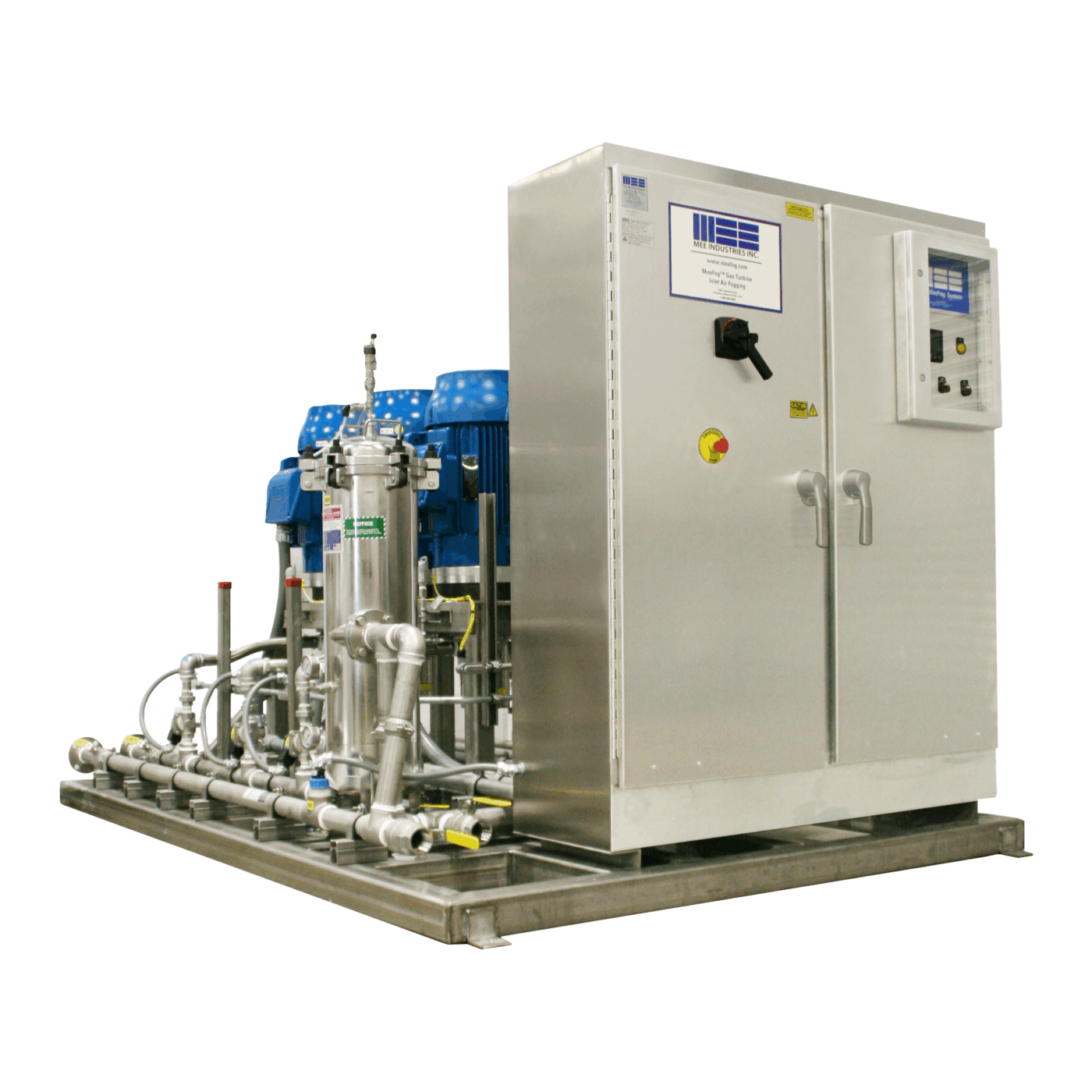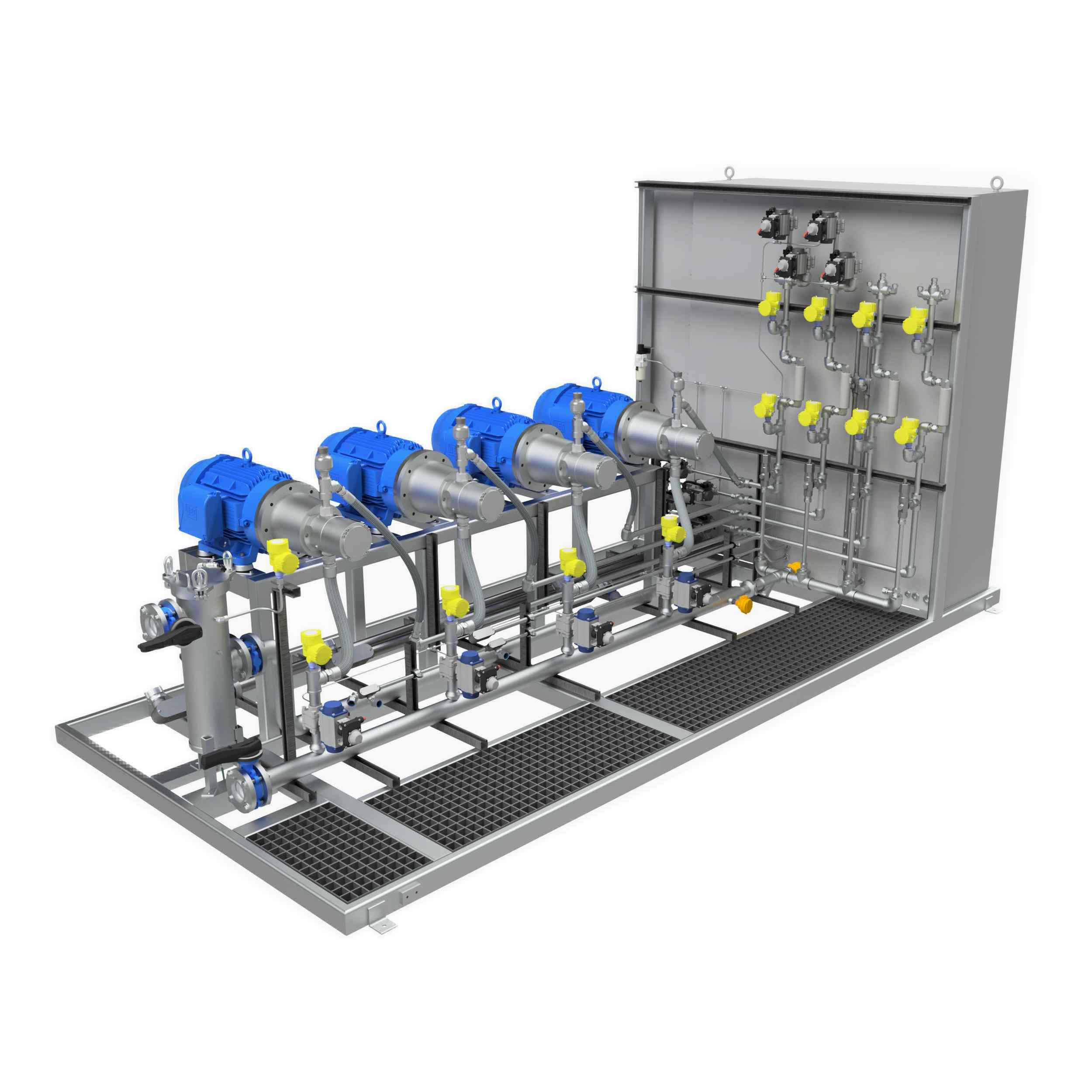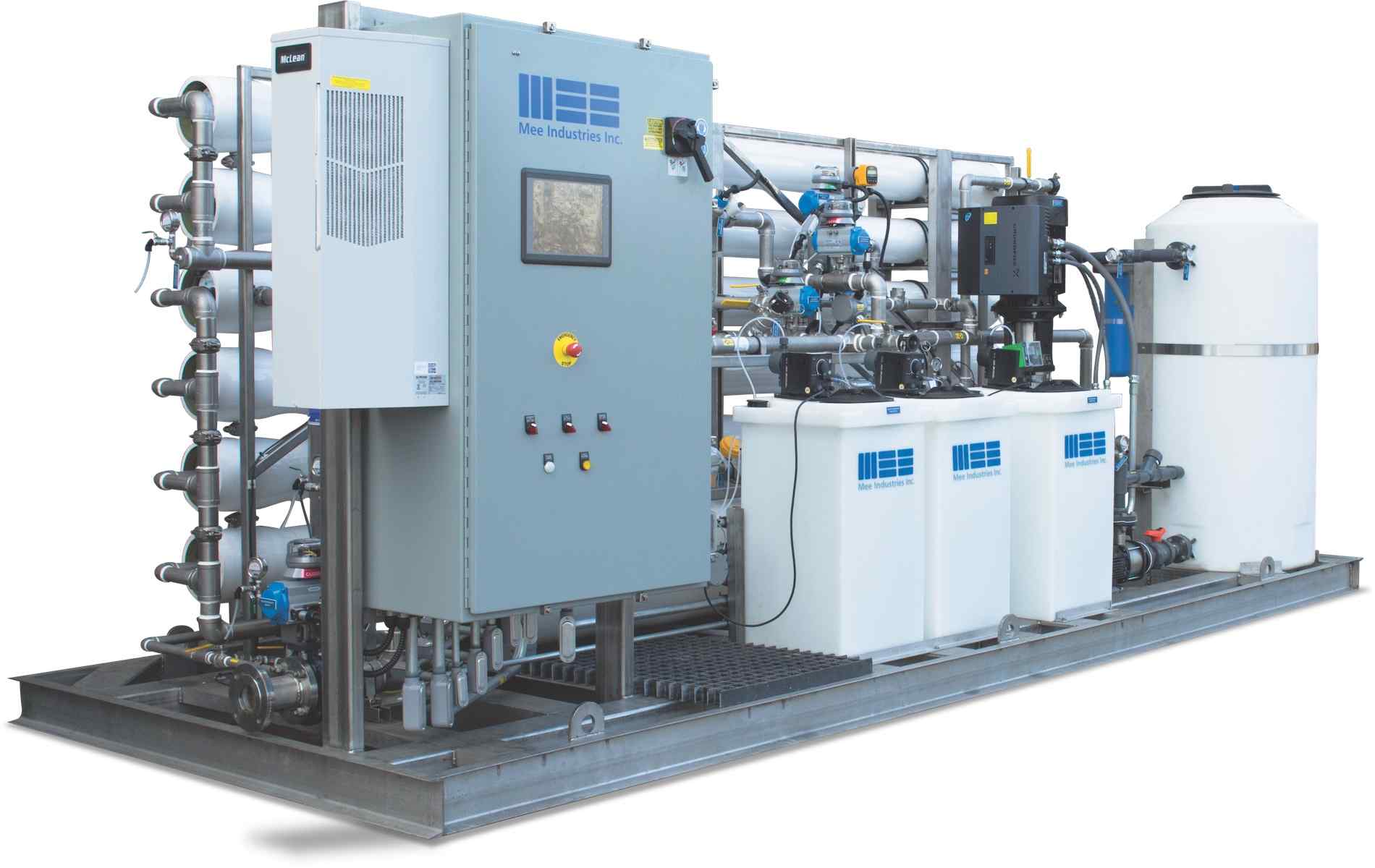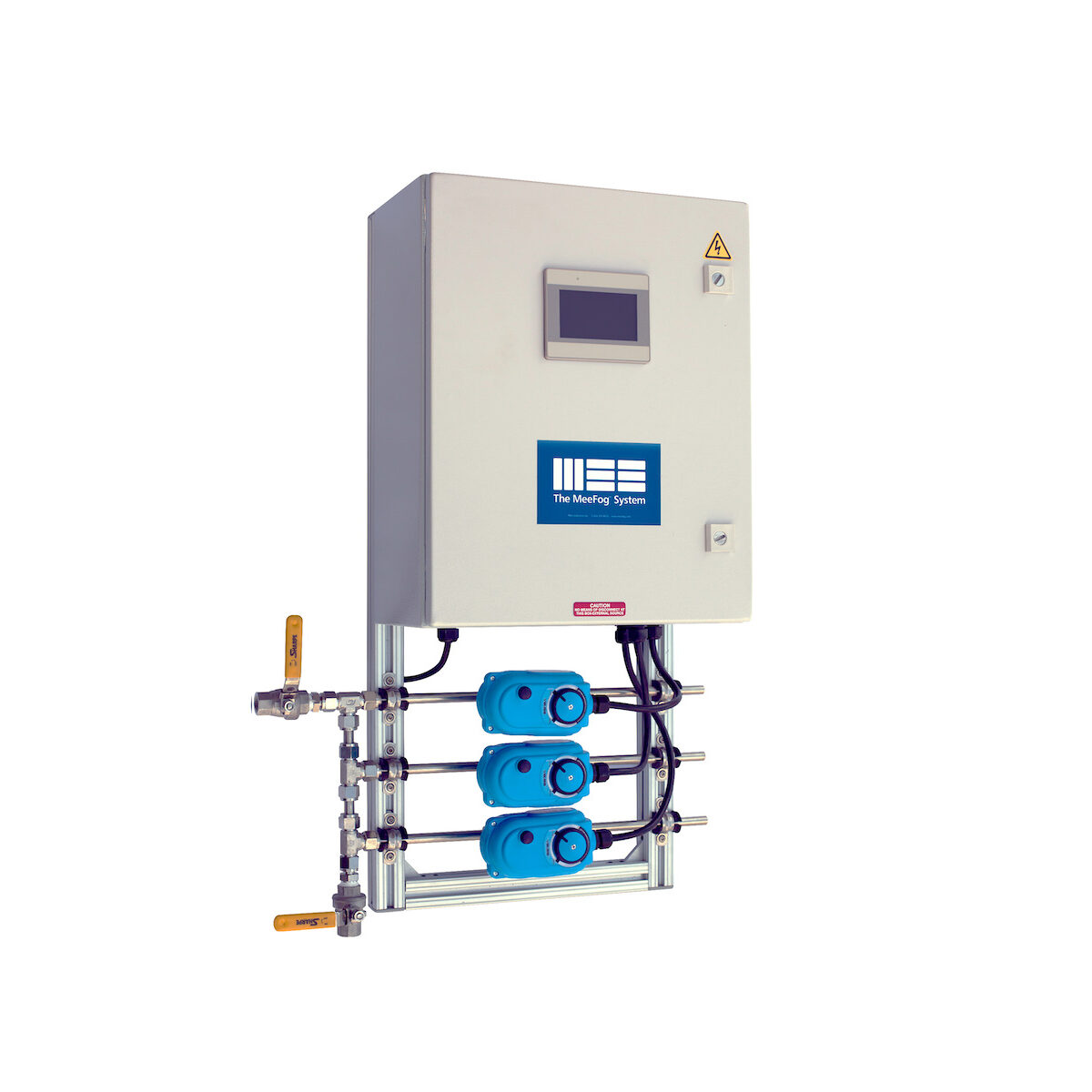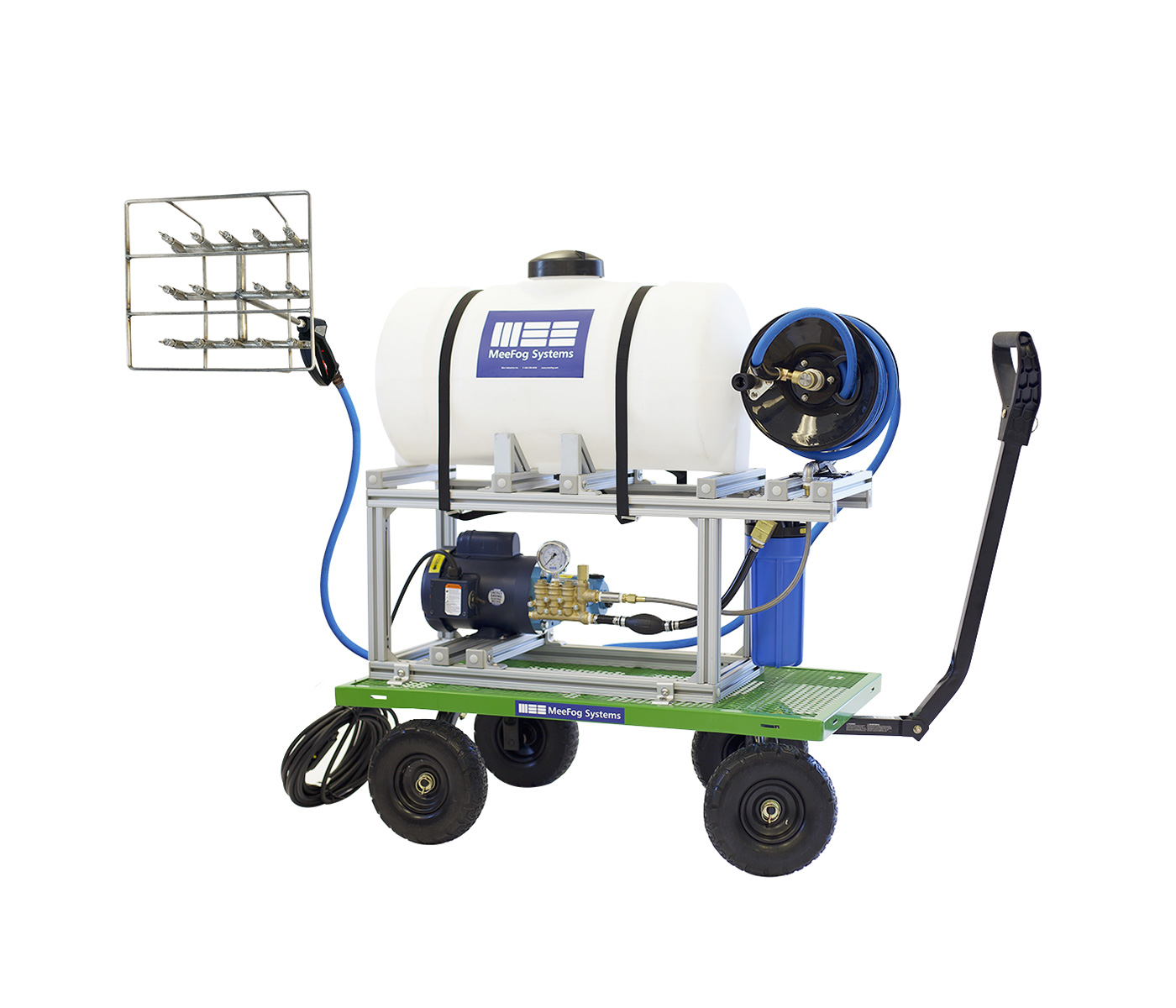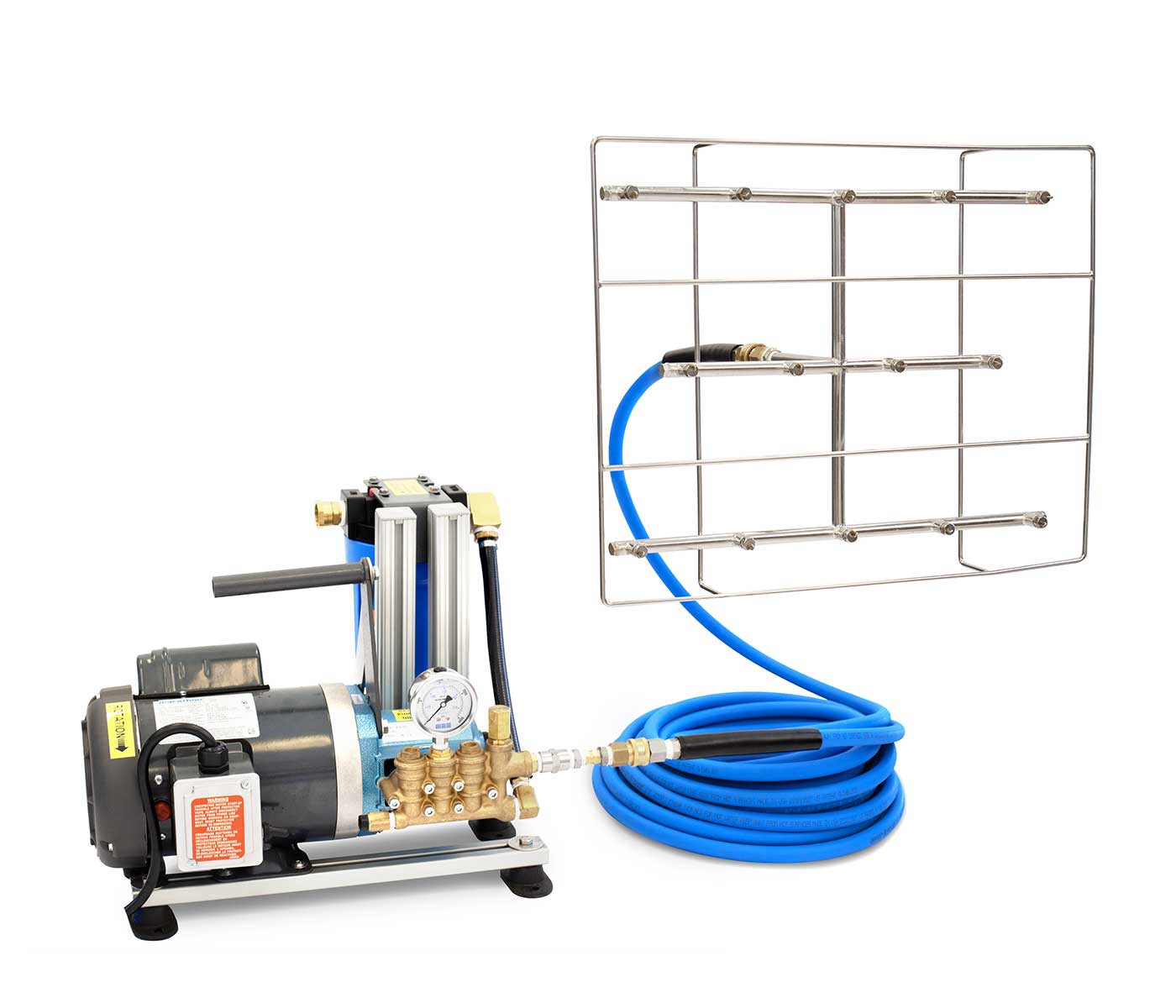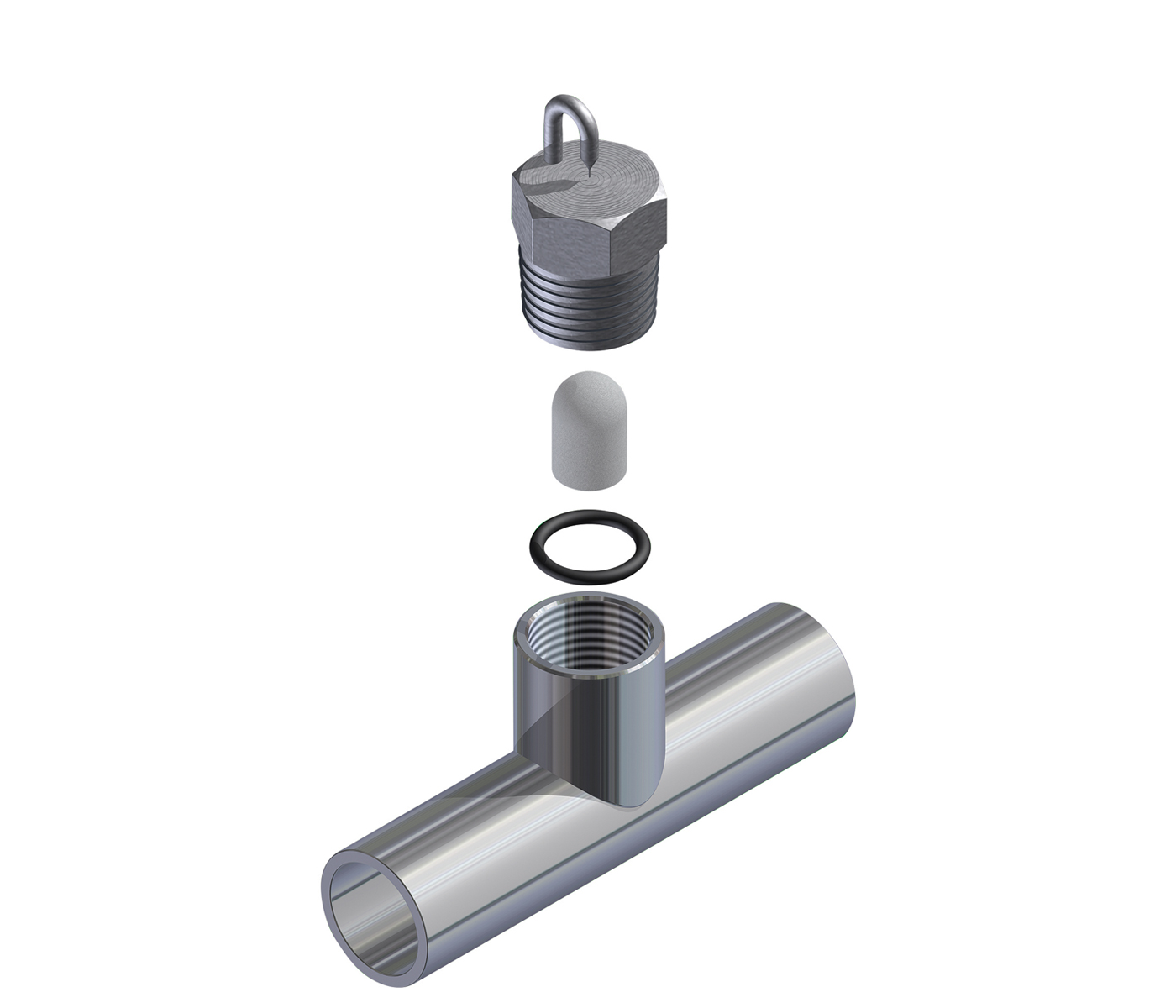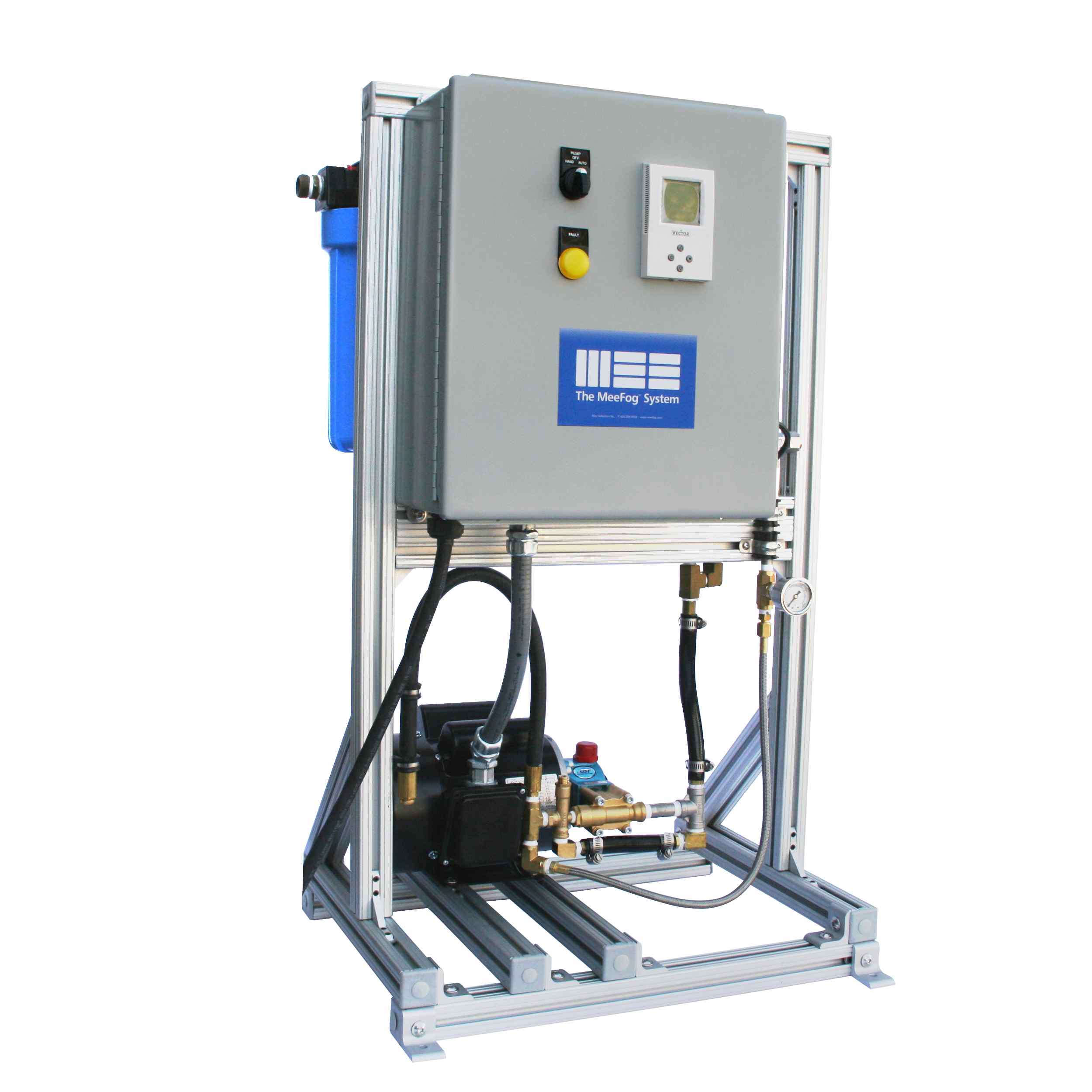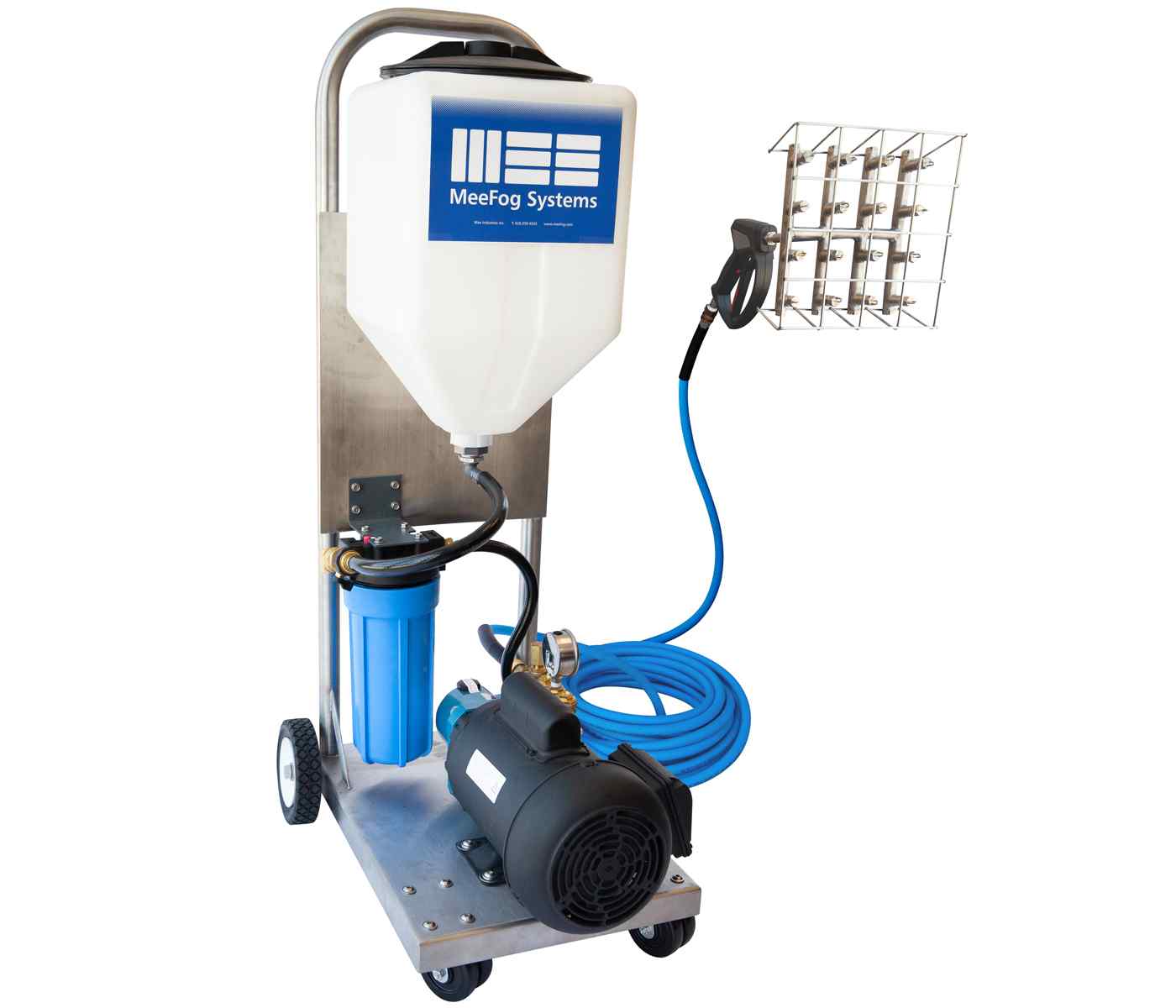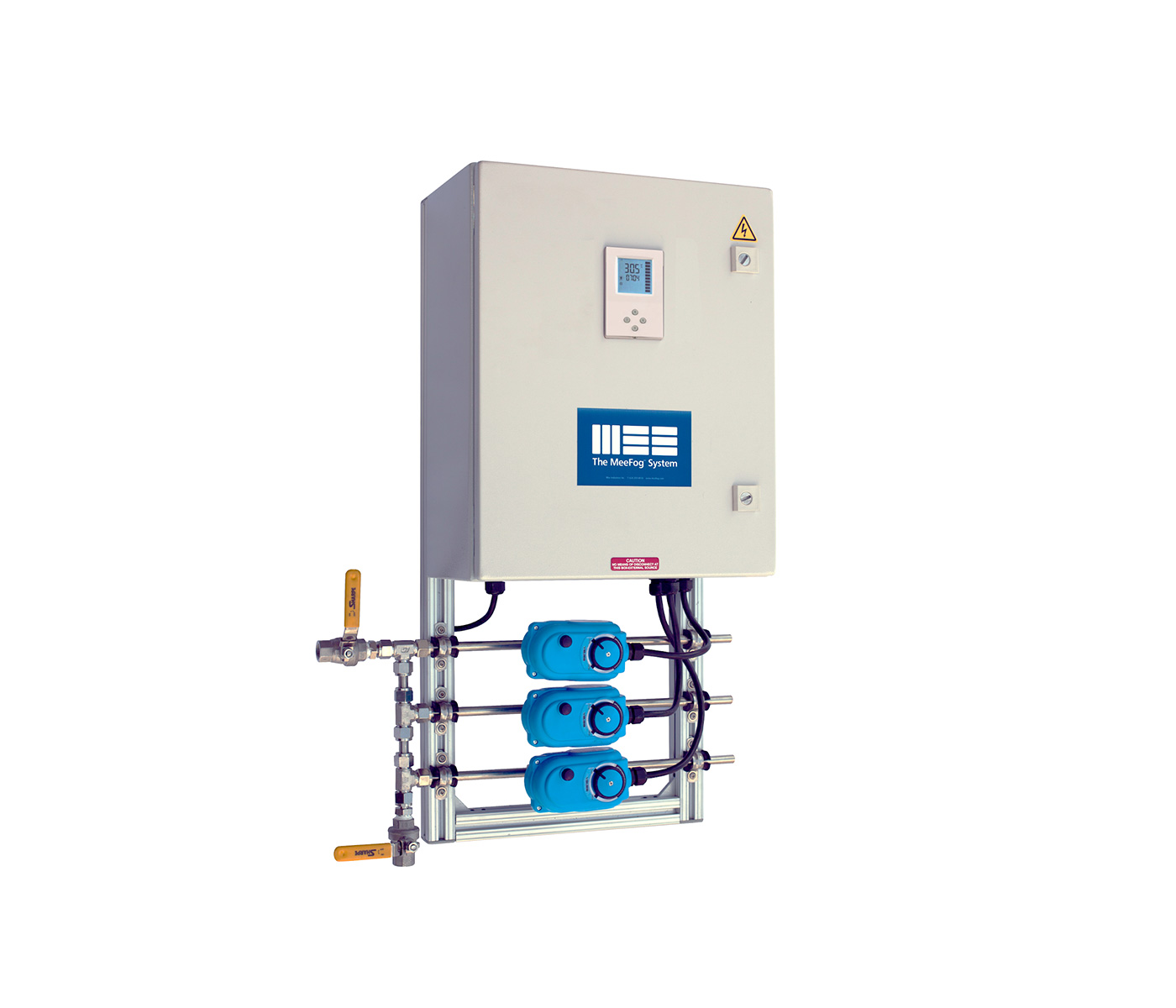Data Center Cooling & Humidification Systems
Keep Your Data Center Efficiently Conditioned and Cool

With data centers running hotter than ever, keeping air cool and at the right humidity is critical to prevent hardware failure or system downtime. MeeFog data center cooling systems provide dual benefits: they cool the air and add humidity, mitigating both thermal and electrostatic risks.
MeeFog technology delivers dependable data center cooling solutions and humidity control through three key applications:
- Heat-Exchanger Pre-Cooling lowers chiller workloads, makes it possible to avoid running chillers for more hours of the year, and adds a safety margin during heat waves.
- Inlet-Air Cooling uses an evaporative method to cool the inlet air and add humidity.
- Humidification maintains optimal humidity levels to reduce electrostatic discharge (ESD), which can damage sensitive equipment.
These applications work on their own or can be combined into a powerful, multi-purpose solution for high-density data centers. The result is tighter humidity control and more energy-efficient data-center cooling that can significantly lower operating costs.
Heat-Exchanger Pre-Cooling
A pre-cooling heat exchanger reduces chiller load and saves energy. This cooling system for data centers lowers condenser coil temperatures, improving efficiency and stability even during heat waves, when external temperatures can strain your equipment and elevate energy consumption.
Inlet-Air Cooling
Data center evaporative cooling cools the air entering the building. This energy-efficient process helps maintain consistent cooling performance in hot, dry climates, reducing dependence on mechanical chillers while improving overall system reliability.
Adiabatic Humidification for ESD Control
The adiabatic humidification process adds moisture to maintain 40–60% relative humidity, preventing static buildup. It protects servers from electrostatic discharge (ESD), improving reliability and extending the lifespan of sensitive electronic components within data centers.

Benefits of The MeeFog Cooling System for Data Centers
MeeFog offers advanced data center cooling solutions that improve performance and reduce energy consumption. Our systems:
- Provide precise humidity control
- Allows for the use of outside air for cooling while maintaining humidity levels.
- Lower maintenance and operating costs
You can also use our systems to cool rooftop condensers. Please reach out to our sales engineer today to find out how a MeeFog system can lower your operating costs.
MeeFog HVAC Installation Diagram
Click the different areas of the diagram below to learn more information about our data center cooling system.
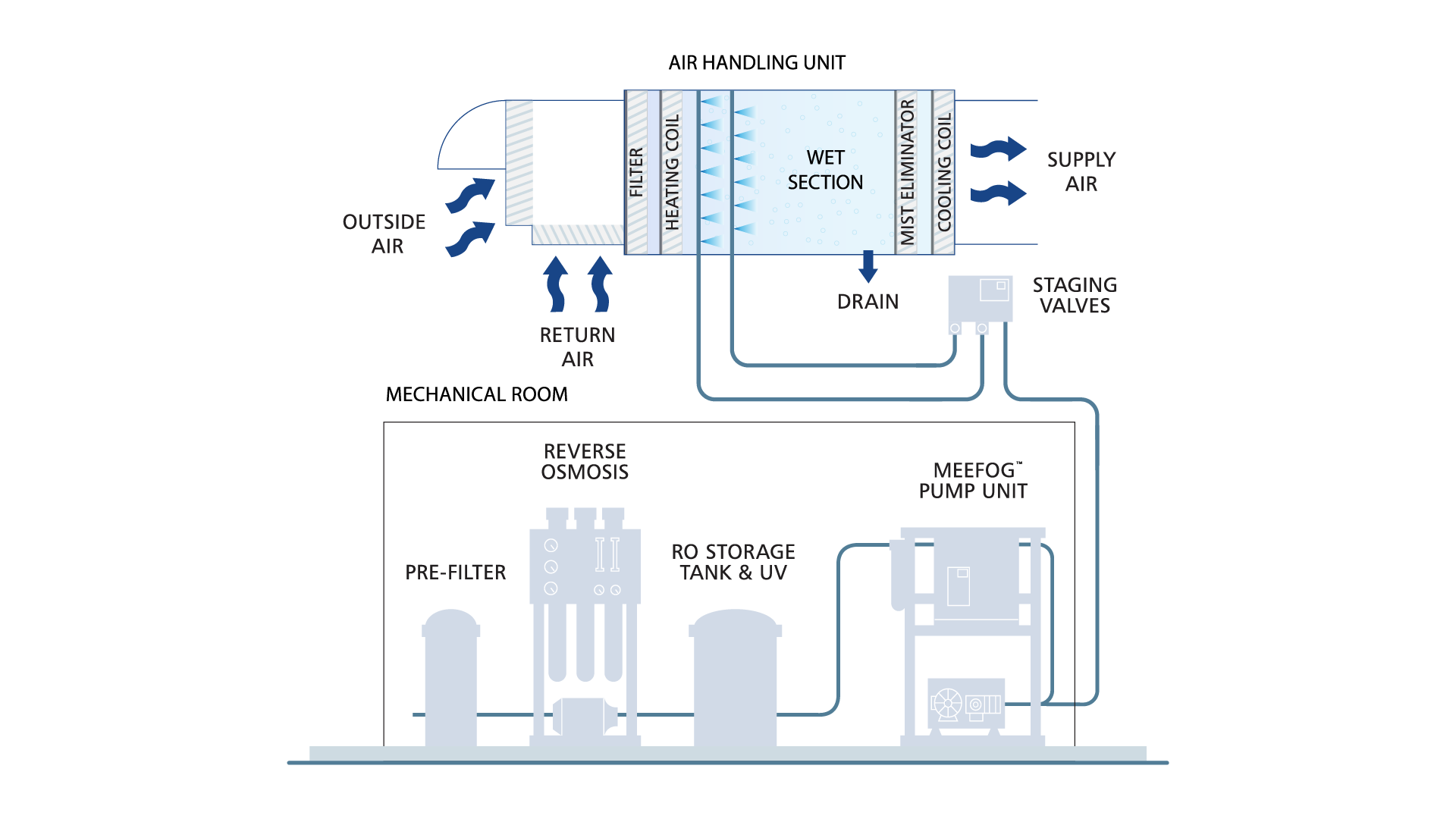
Reverse Osmosis Water Purification
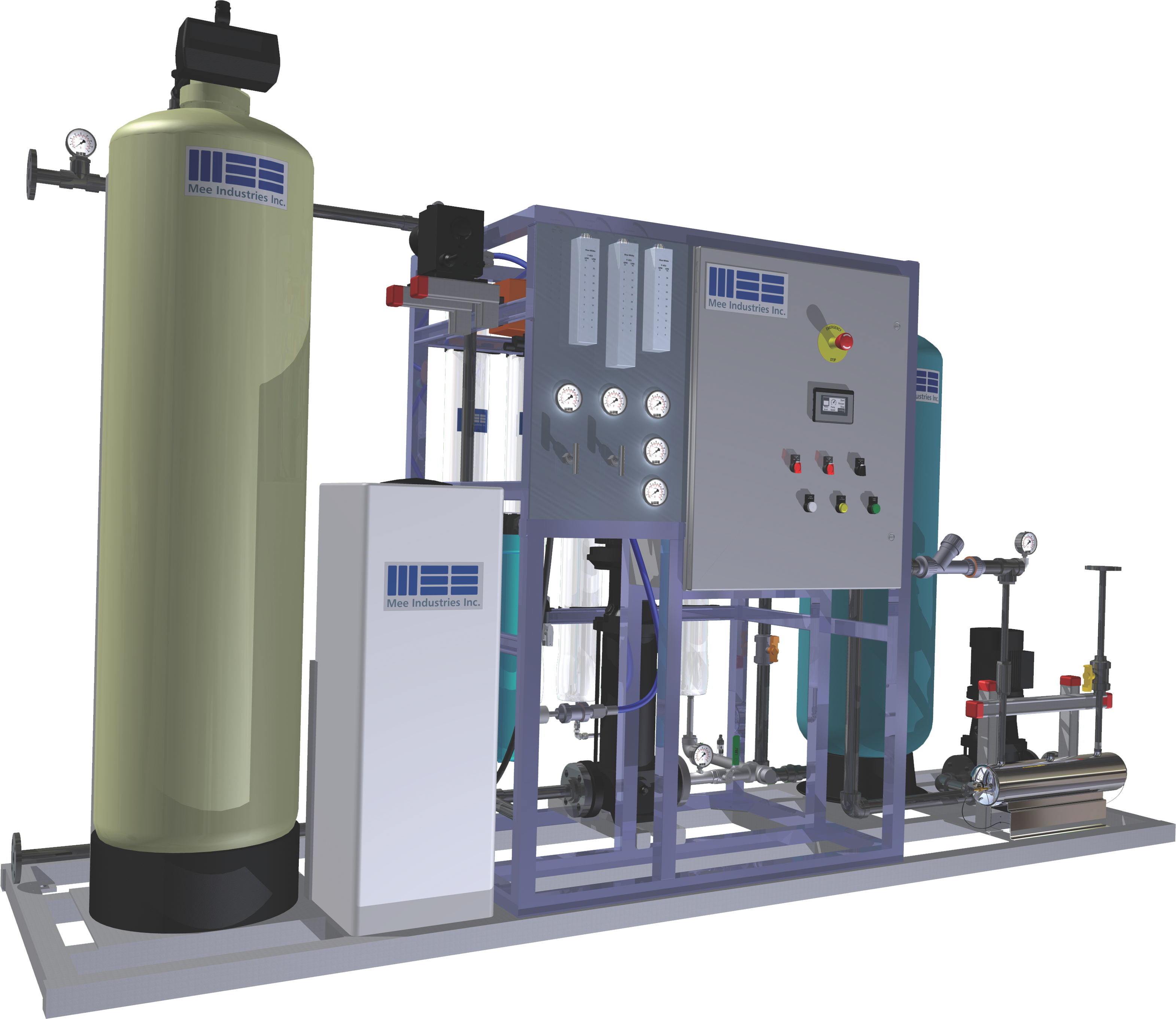
Reverse Osmosis Water Purification
City water is treated using the Reverse Osmosis water treatment rack. This purifies the water, removing minerals, particulate, and microorganisms. Systems include automated membrane flushing, pre-treatment filtration, and UV Re-Circulation.
MeeFog Pump
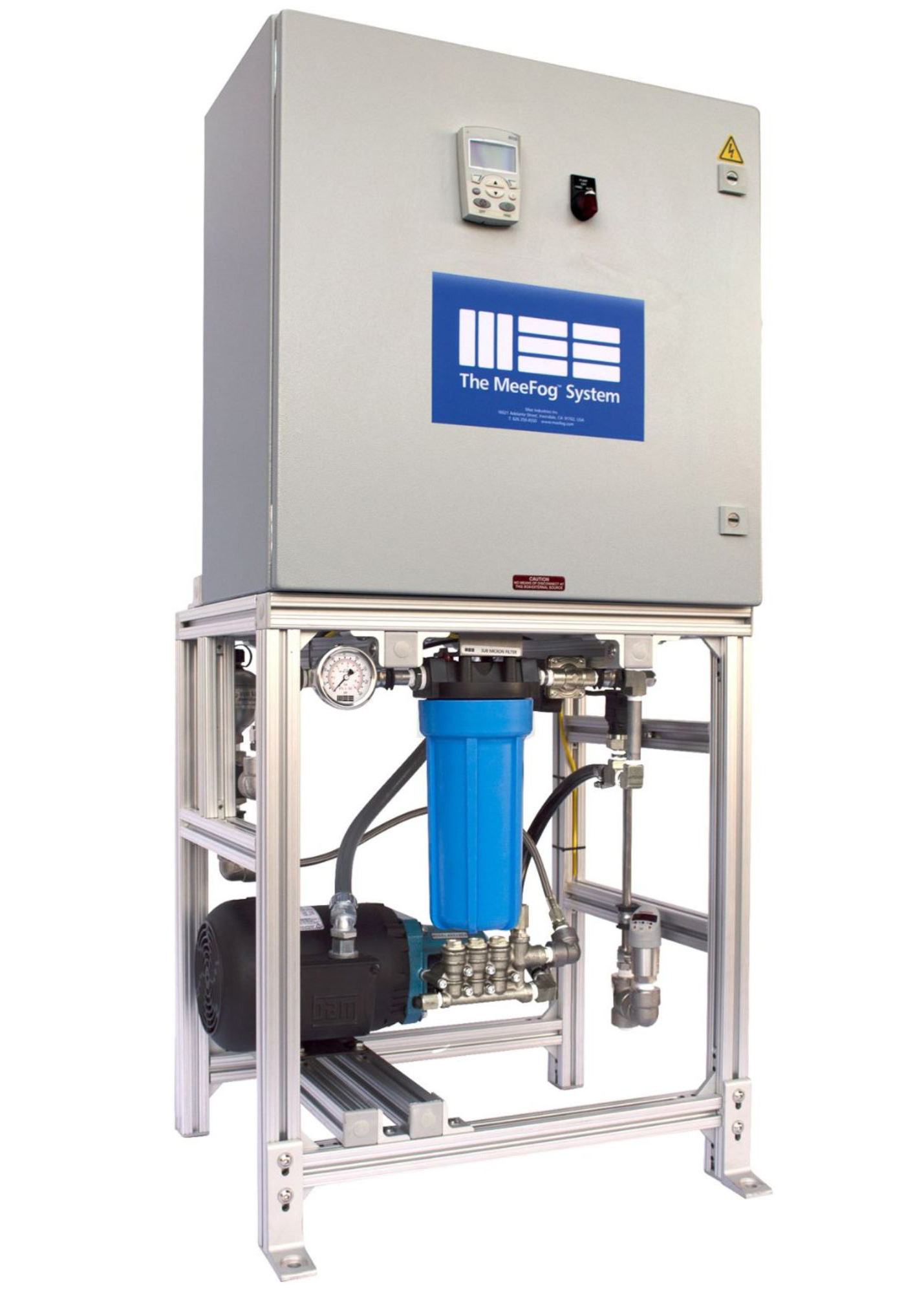
MeeFog Pump
The high-pressure pump maintains 1000 psi water pressure in order to atomize the water into tiny droplets that can evaporate into the air stream. The pump rack has a VFD with panel-mounted controller that maintains pressure when staging valves open and close.
Staging Valves
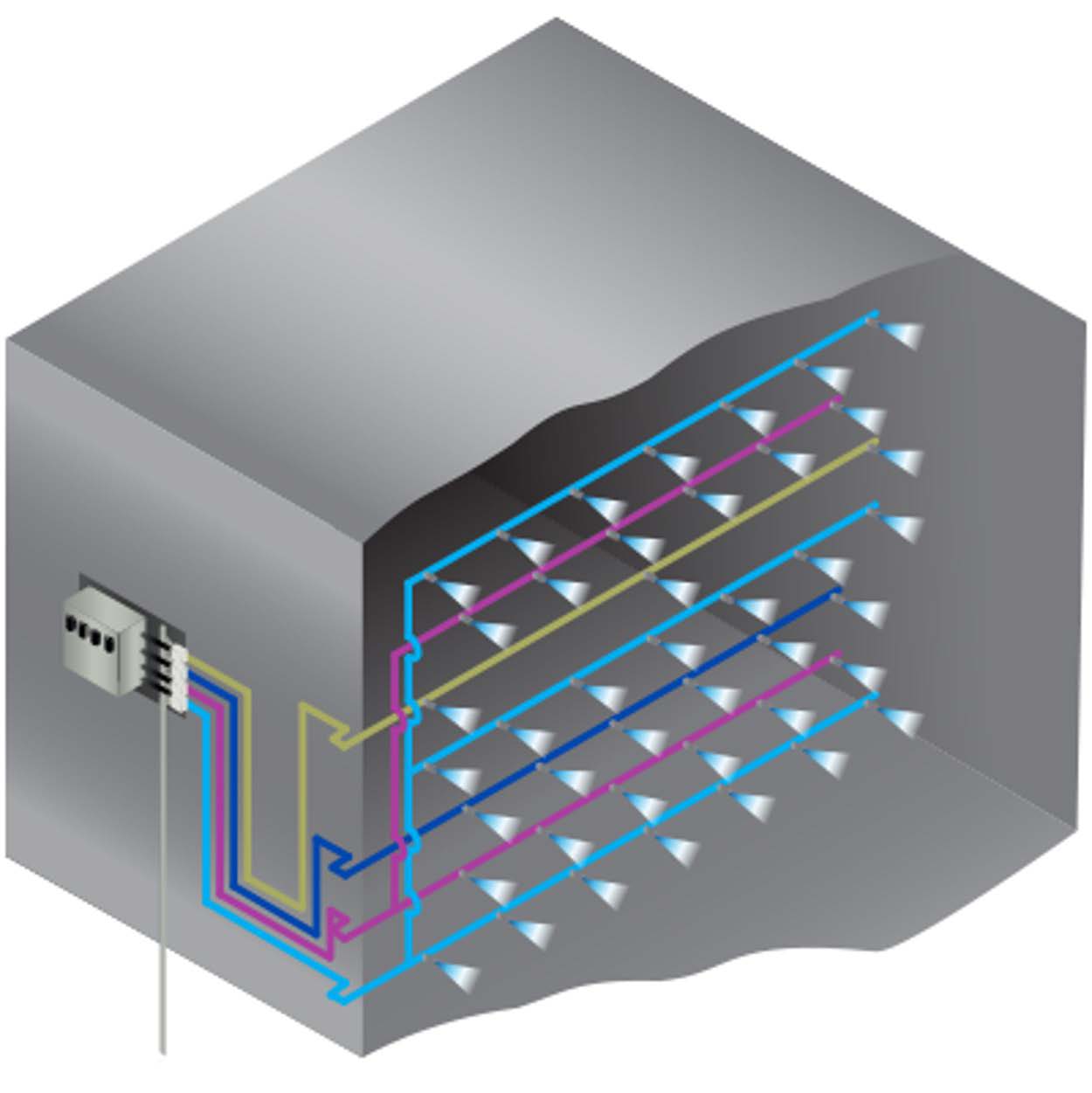
Staging Valves
The valve panel allows precise control over how much humidification is injected into the air stream based on a signal from the BMS. It is possible to control the humidification level in the space to plus or minus 1% RH.
Nozzle Manifolds
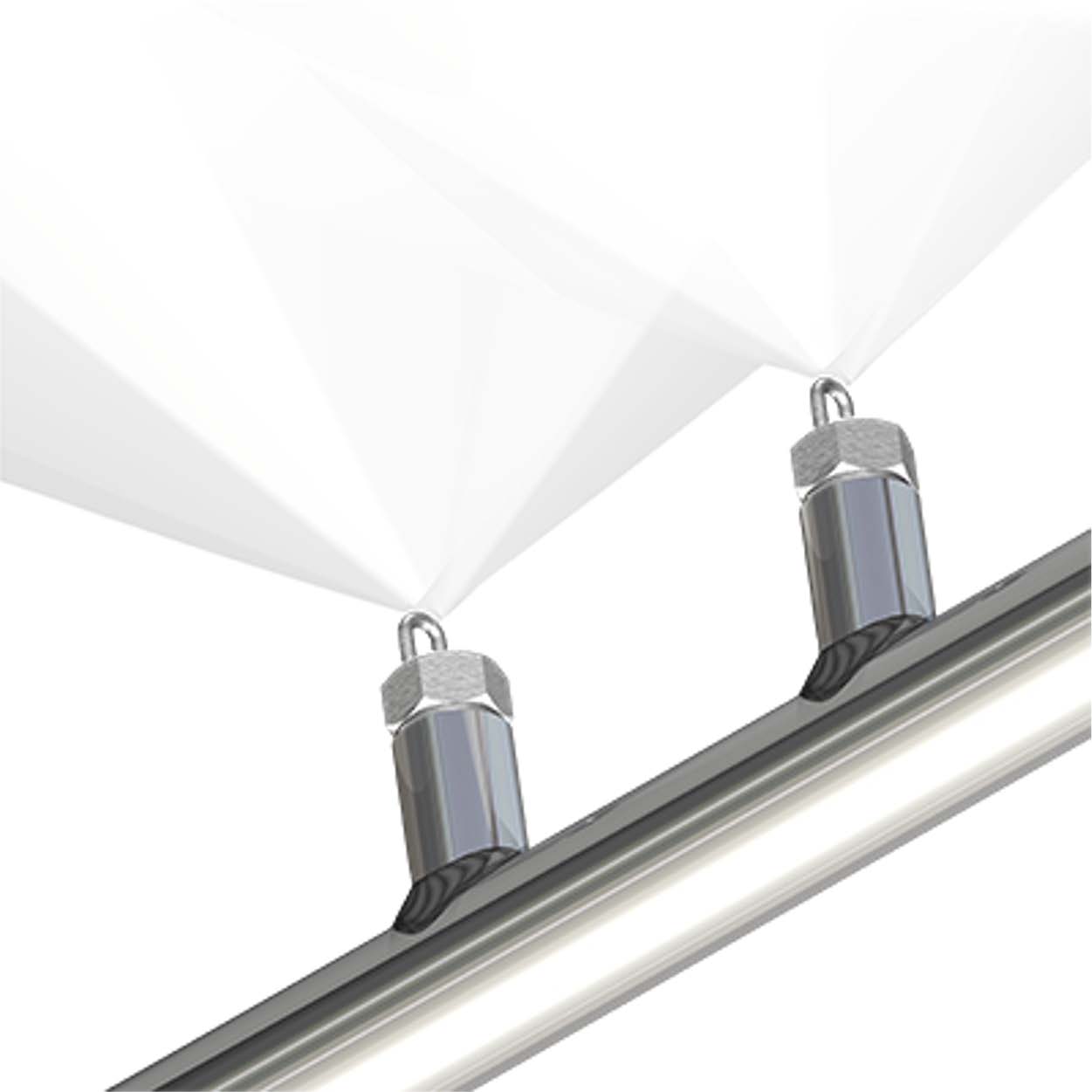
Nozzle Manifolds
Fog nozzles are mounted on stainless steel tubing inside the air handler. These nozzles produce droplets in the 10-micron range. These precision nozzles are manufactured and tested in Mee Industries' own facility.
Mist Eliminator
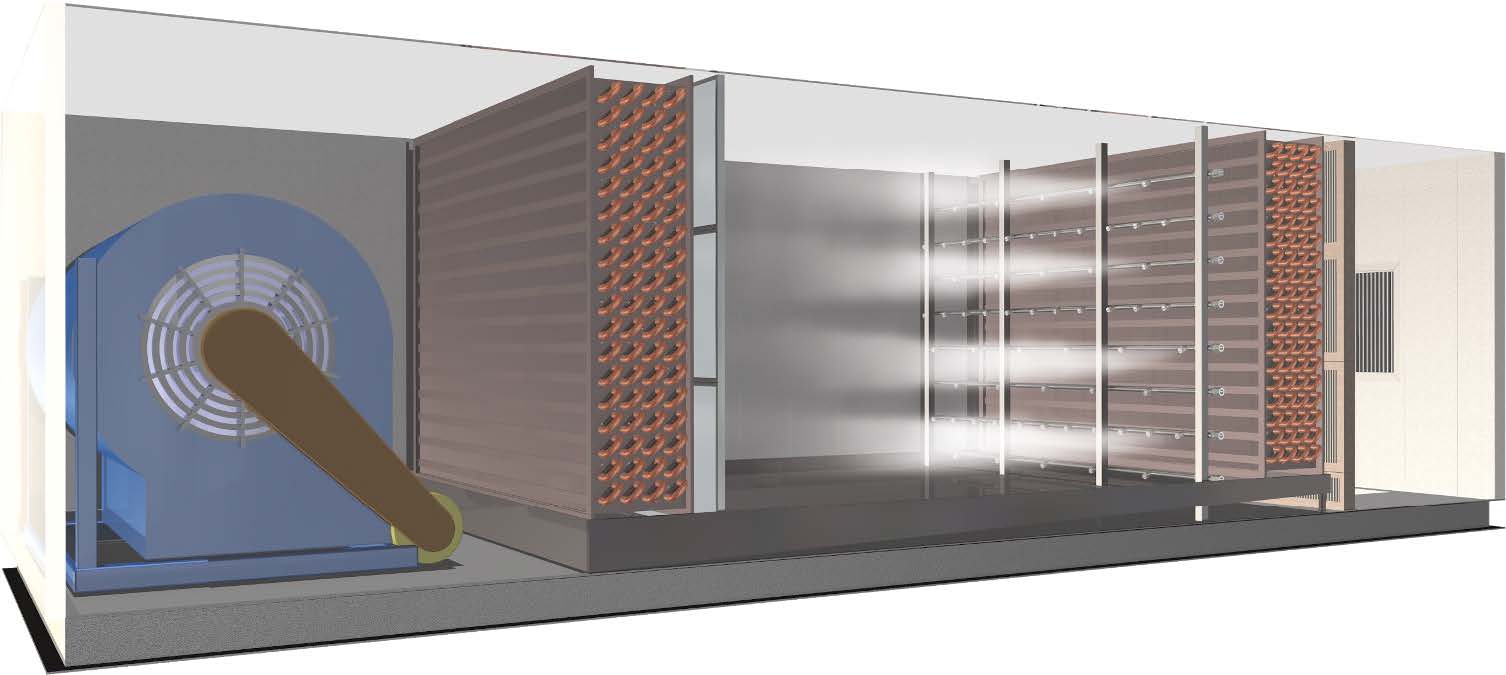
Mist Eliminator
The mist eliminator removes water droplets larger than 5 microns. The filter pads can come off their stainless steel frames and can be washed or replaced easily.
System Overview
Nozzle Comparison
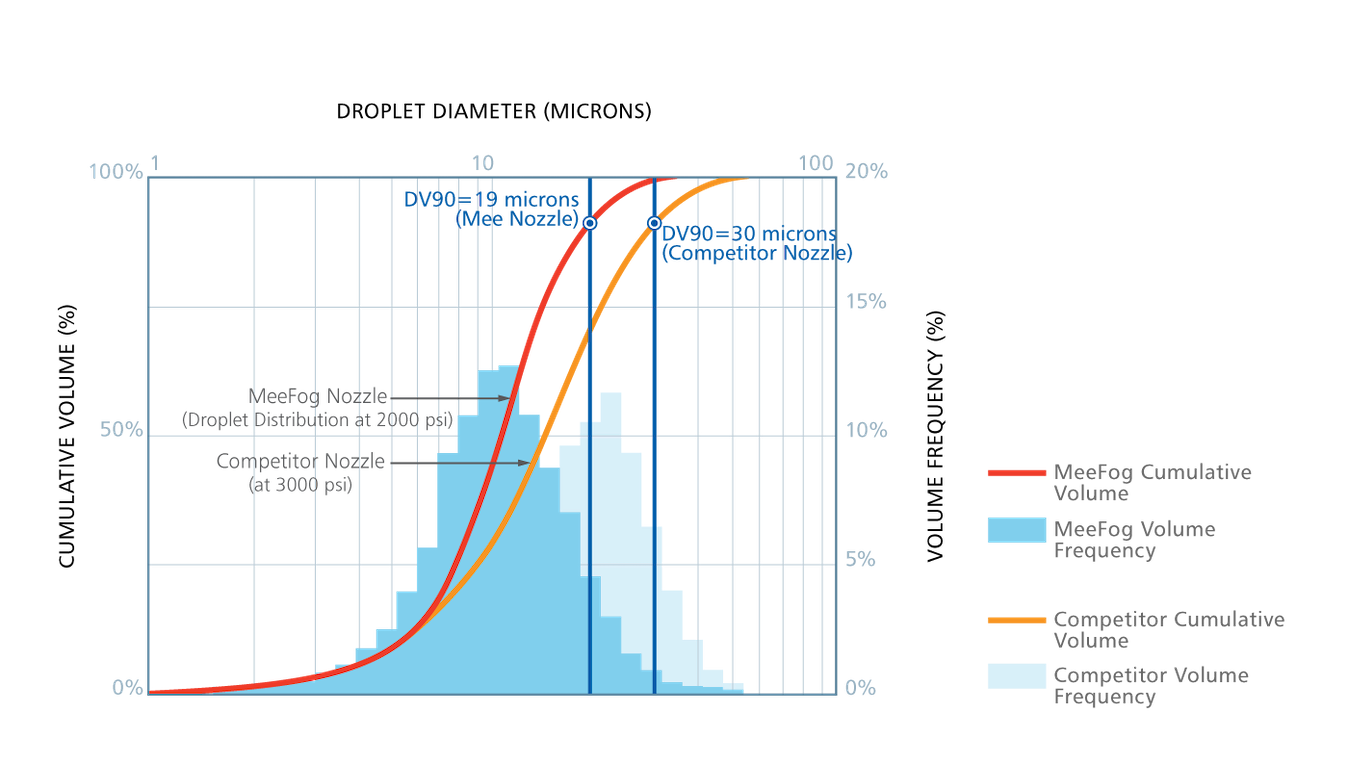 At an operating pressure of 2000 psi, the resulting average droplet size is roughly one-tenth the diameter of a single strand of human hair.
At an operating pressure of 2000 psi, the resulting average droplet size is roughly one-tenth the diameter of a single strand of human hair.
With MeeFog data center cooling systems come benefits like:
- Increases system uptime and reliability.
- Protects servers and IT hardware from overheating.
- Extra cooling capacity during peak heat events
- Supports high-density rack environments efficiently.
- Cuts cooling energy consumption.
- Maintains precise humidity and temperature levels.
Droplet Comparison
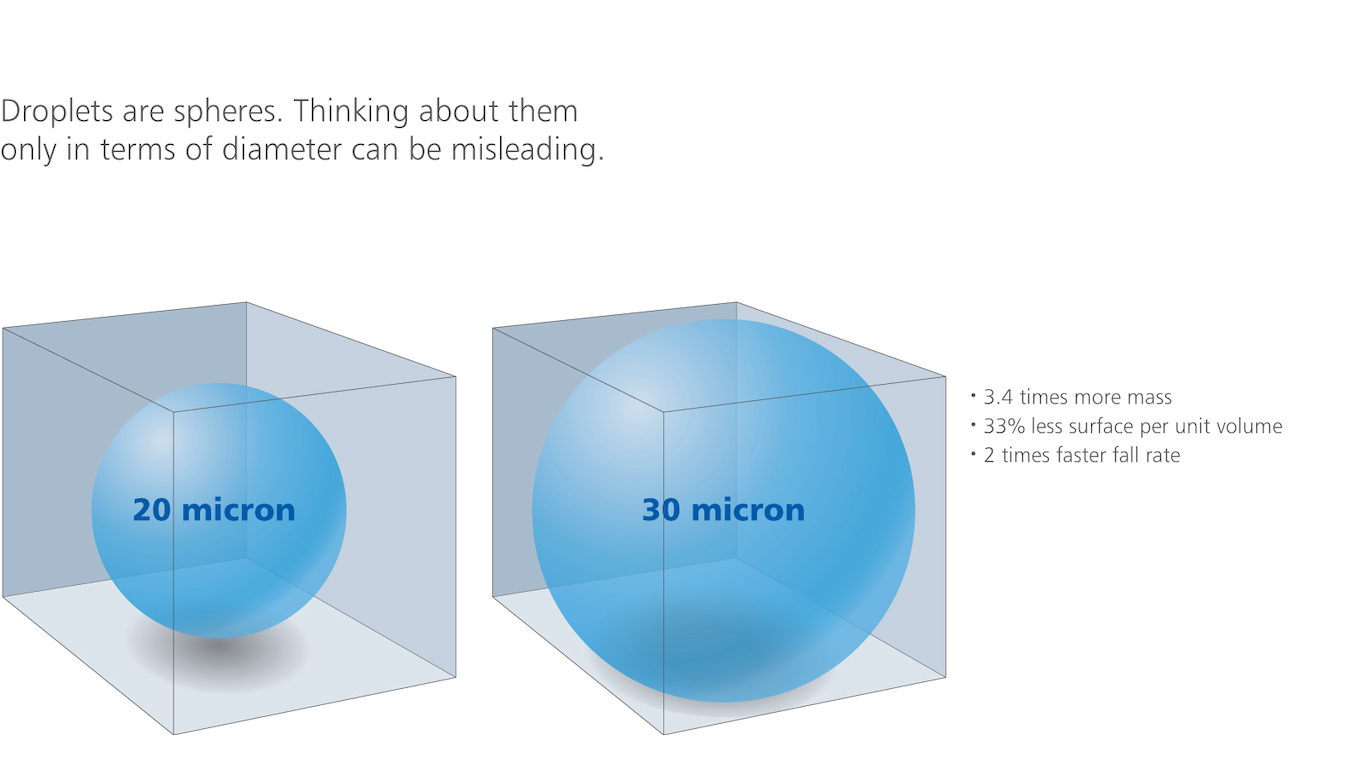 Small droplets have a larger surface-to-volume ratio compared to larger droplets. This allows them to evaporate much more rapidly than larger droplets.
Small droplets have a larger surface-to-volume ratio compared to larger droplets. This allows them to evaporate much more rapidly than larger droplets.
Want Proof?
Still not sure if you want to upgrade your data center cooling infrastructure? We’ll gladly supply a detailed payback analysis report for your Hospital or Medical Center, including:
- Installed the MeeFog system cost.
- Predicted process gains per year.
Featured Case Study
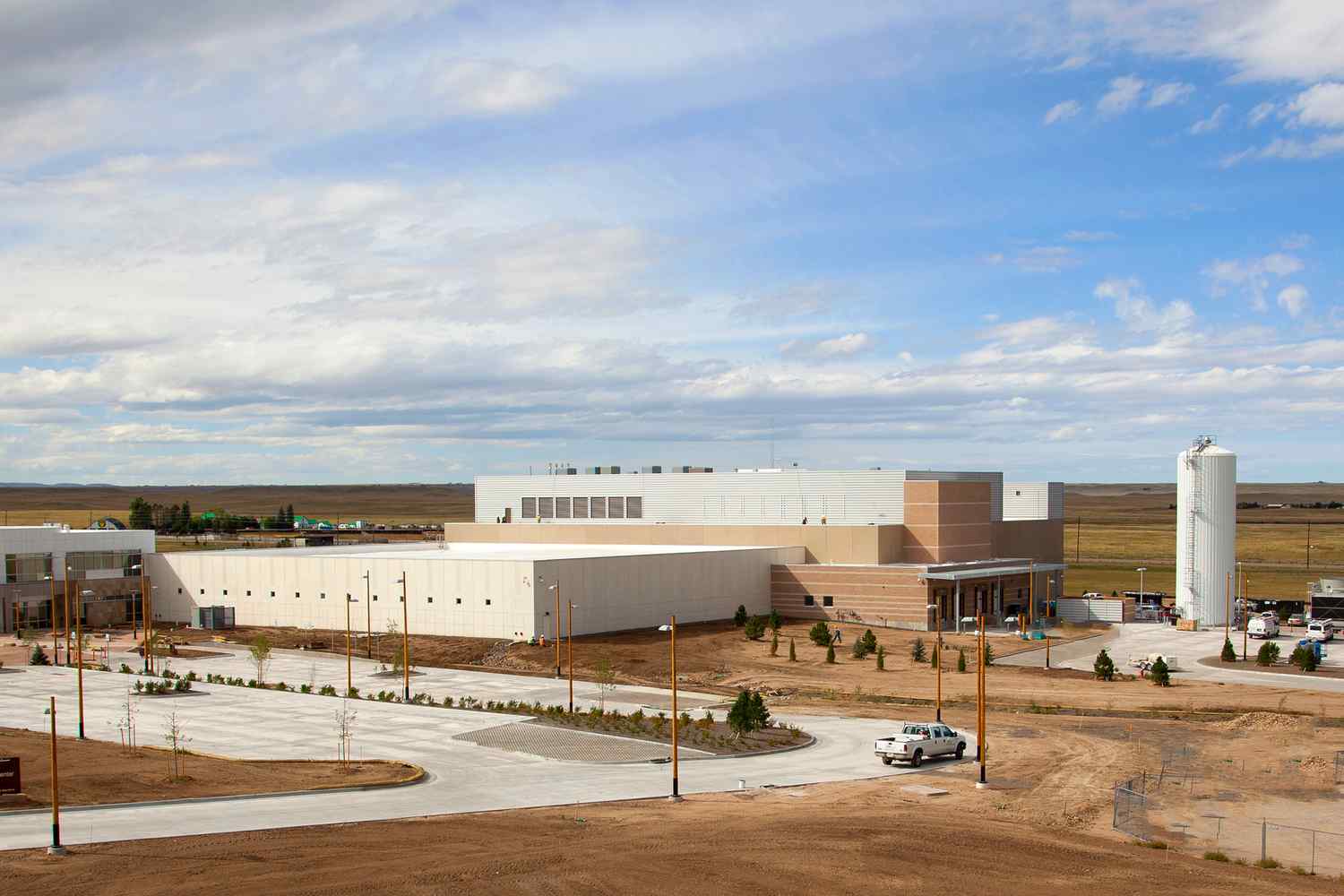
NCAR Uses MeeFog Data Center Cooling System to Prevent Electrostatic Damage to its New Supercomputer
The Challenge:
When the National Center for Atmospheric Research (NCAR) decided to build a new supercomputing center, it wanted to take advantage of the free cooling available in the high, dry Wyoming environment. But using that dry air risked electrostatic damage to the $25-$35 million Yellowstone supercomputer, the data analysis and visual systems, and all the other storage, networking, and ancillary equipment in the data center.
The Solution:
For reliable, energy-efficient humidification, NCAR installed a MeeFog data center cooling system with two 1.5 HP ceramic plunger pumps delivering 2 gpm of fog into the air handlers, allowing NCAR to safely use outside air.
Opened in 2012, the NCAR Wyoming Supercomputing Center (NWSC) is a 170,000 square foot data center with two 12,000 square foot raised floor spaces. The site houses the IBM Yellowstone 1.6 Petaflop supercomputer in one of those modules, with the other set aside for future expansion.
In addition to the computing space, the NWSC has 6,000 square feet of data storage and archival space, a 2,500 square foot network operations center, administrative offices, and a visitor center, with 100,000 square feet devoted to mechanical and electrical equipment.
Data Centers Cooling System FAQ
Data centers contain sensitive servers, storage, and networking equipment that require stable environmental conditions. Low humidity increases the risk of electrostatic discharge (ESD), which can cause catastrophic damage to IT systems. Industry guidelines recommend maintaining around 45% RH to protect equipment and ensure uptime.
Steam humidifiers require large amounts of electricity or gas to boil water, adding unnecessary heat that increases cooling loads. In contrast, MeeFog uses high-pressure fogging, which cools the air as it humidifies. On average, MeeFog data center cooling systems consume 1/100th the energy of electric steam humidifiers, making it one of the most energy-efficient humidification solutions for data centers.
At its Tier 3 data center in Fitchburg, Wisconsin, OneNeck IT Solutions installed a MeeFog data center cooling and humidification system to reduce energy use. Combined with UPS and BAS modifications, the system significantly cut power consumption.
The MeeFog data center cooling system provided: high-pressure fogging to reduce chiller load, full redundancy (two pumps, two power feeds, two controls), simple integration with existing AHUs, and one fogging system per room handled the load. This approach provided robust reliability while lowering operational costs.
MeeFog data center cooling systems are designed to meet Tier 3 redundancy standards, with dual pumps, dual power feeds, and independent controls. This ensures continuous operation even during component failures. By integrating into existing air handling units (AHUs), MeeFog delivers precise humidity control without compromising uptime.
The ROI is typically very fast, as MeeFog reduces bothhumidification and cooling energy costs. With energy use up to 100x lower than electric steam, operators can achieve payback within 1–3 years, depending on facility size and hours of operation. At the same time, MeeFog data center cooling systems reduce operational complexity and maintenance compared to steam boilers.
Yes, MeeFog humidifiers integrate seamlessly with modern data center BAS and monitoring systems, enabling operators to control humidity levels with the same precision as temperature and airflow. At OneNeck IT Solutions, the MeeFog system worked alongside existing infrastructure while delivering measurable energy savings.
